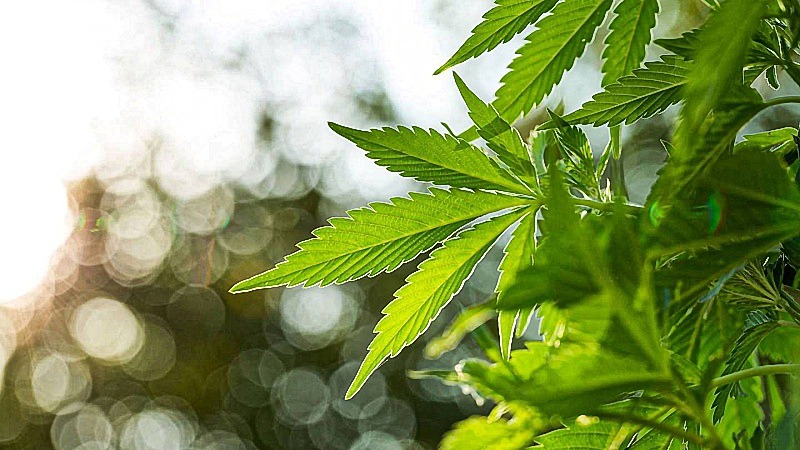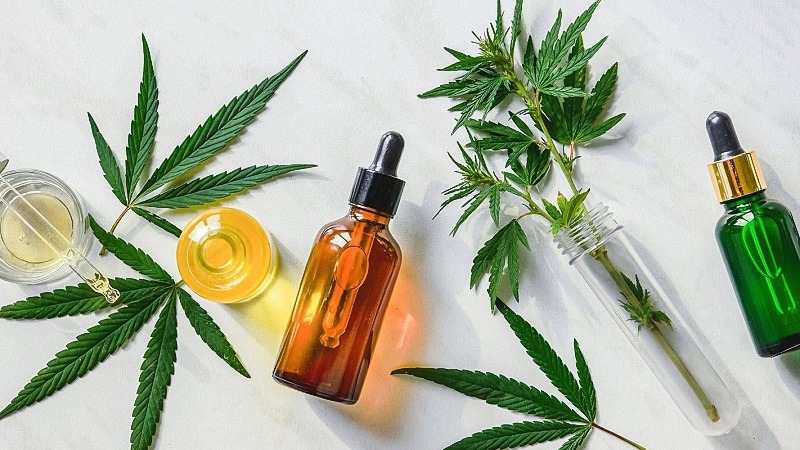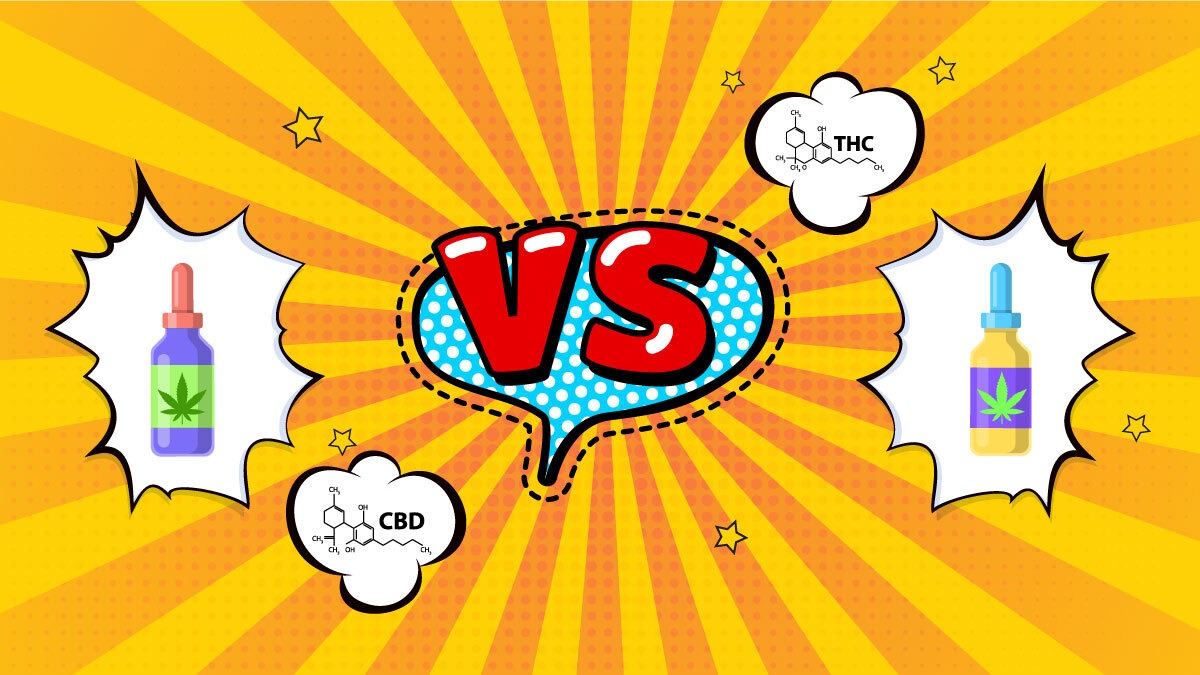CBD and THC are two of the most popular and well-studied cannabinoids.
CBD is the non-psychoactive cannabinoid, while THC is the main cannabinoid that gets you high.
Both cannabinoids produce many health effects through their influence on the endocannabinoid system and other receptors in the body.
However, there’s more to them than these simple definitions.
In this article, we’ll discuss the differences between THC and CBD, so you can choose the best product for your needs.
Similarities Between CBD and THC

Before we go to their differences, let’s first discuss the similarities between CBD and THC.
CBD and THC are sourced from hemp and marijuana, both of which belong to the cannabis family. Of the two, hemp contains more CBD than THC (up to 0.3% in the United States), while marijuana is any cannabis plant that contains more than 0.3% THC.
Of note, hemp that contains more than 0.3% THC is considered marijuana.
Both cannabinoids come from cannabigerol or CBG, the precursor to other cannabinoids. When CBG degrades, it’s transformed into several cannabinoids including THC, CBD, CBC, etc.
When we take a close look at the molecular structure of THC and CBD, they each have 21 carbon, 30 hydrogen, and two oxygen atoms; so, molecularly, they’re both almost alike.
What makes them different is the arrangement of their atoms, accounting for the differences in their effects.
They both stimulate the endocannabinoid system and other biological systems responsible for maintaining homeostasis and modulating symptoms. As a result, these compounds have been extensively studied for their abilities to reduce pain, inflammation, support a healthy stress and mood response, and so many other benefits.
CBD and THC cause mouth dryness. They reduce saliva production when they activate the cannabinoid receptors on the salivary glands, resulting in the uncomfortable cottonmouth sensation [1].
These cannabinoids also won’t cause an overdose simply because there are only a few cannabinoid receptors in the region of the brain controlling our heart and lungs. The effects of high-THC doses may be uncomfortable and even terrifying, but not lethal.
Both cannabinoids also have the potential to interact with other drugs and medications. They can either dampen or amplify the effects, and they can also influence the drugs’ toxicity levels. For this reason, we always recommend discussing the use of medical marijuana with the patient’s primary care physician first.
Differences Between CBD and THC

CBD and THC may have many similarities, but they also differ in many ways.
Knowing their differences helps you avoid potential side effects, especially if you’re using marijuana for its health benefits.
Now, how do CBD and THC differ?
1. Arrangement of Atoms
As mentioned earlier, CBD and THC have an almost similar molecular formula, but the arrangement of their atoms differ.
When you look at the THC molecule, you’ll notice that it has three rings, with one oxygen atom bonding to the rest of the molecule and creating a closed form.
CBD, on the other hand, only has two rings and a sort of open form since its hydroxyl group (an oxygen atom bonded to a hydrogen atom) isn’t attached to carbon atom #5.
This difference is responsible for the many ways THC and CBD affect the body differently.
2. Psychoactivity, Dependence, and Addiction
The endocannabinoid system is made up of two cannabinoid receptors called the CB1 and CB2 receptors. Both receptors are found all over the body, but CB1 is more abundant in the nervous system (especially the brain), while CB2 is denser in the immune and gastrointestinal systems.
CB2 is mostly involved in the regulation of immune response.
CB1, on the other hand, is involved in many physiological functions including pain, memory, fear, learning, appetite, mood, emotions, motor and sensory control, as well as pleasure and reward.
Now, because of the difference in the arrangement of CBD and THC atoms, these cannabinoids bind differently to the cannabinoid receptors.
THC readily binds to the CB1 receptor, and its activation produces psychoactive effects. CB1, you should know, is the receptor responsible for the cannabis high.
Additionally, THC’s activation of the CB1 receptors in the brain’s pleasure and reward centers also increases marijuana dependence and addiction risks.
CBD, on the other hand, doesn’t bind very well to the CB1 receptor. This is the reason why CBD won’t get you high or increase your dependence and addiction risks.
3. Medical Benefits
Both cannabinoids offer many similar health benefits.
However, people are using CBD more for stress and anxiety. They find that CBD makes them feel calmer and more in control of their stress, mood, and emotions.
As for THC, many people find that it works best for appetite and sleep problems.
Why is Using CBD and THC Together More Beneficial?
CBD and THC may have unique uses, but when used together, they become more potent.
Cannabinoids working together yields a phenomenon called the entourage effect. This simply means that the cannabinoids, together with the terpenes, boost each other’s beneficial effects, an effect that’s stronger than what isolates can produce.
For example, CBD alone may already have painkilling and anti-inflammatory effects, but these effects are limited since CBD is only very effective at a certain dose.
CBD has what scientists call a bell-shaped dose-response curve. If you take higher or lower than CBD’s optimal therapeutic dose, then CBD becomes less effective [2].
However, if you use CBD and THC together, then their combined therapeutic effects become more effective and potent in modulating symptoms.
Can CBD Products with THC Get You High?
As long as the CBD product is derived from hemp, with a threshold of up to 0.3%, it should not produce psychotropic effects.
Moreover, CBD also has a dampening effect on THC’s high.
According to studies, CBD may not bind well with the CB1 receptor’s active site, but it can bind to another site on the receptor called the allosteric site [3]. When CBD attaches to the allosteric site, it changes the shape and size of the receptor’s active site, making it difficult for THC to bind to the CB1 receptor and produce psychoactive effects.
CBD also produces a dampening effect on the brain’s pleasure and reward centers, further reducing THC’s effects. This effect is also a reason why CBD may help with dependence and addiction problems [4].
4. Side Effects
CBD and THC also differ in some side effects.
CBD may cause fatigue, weight loss, dizziness, diarrhea, and low blood pressure.
THC, on the other hand, may trigger anxiety, paranoia, hallucinations, motor incoordination, red eyes, short-term memory loss, inability to focus, and increased heart rate.
Prolonged and heavy use of THC may also result in dependence, addiction, and long-term psychiatric problems.
Both cannabinoids are generally safe and well-tolerated. Compared to opioids, high doses of CBD and THC won’t lead to life-threatening overdoses.
If THC side effects become too uncomfortable, you can place a few drops of CBD oil under your tongue to reduce THC’s effects.
You can also take the edge off your THC buzz by shifting your focus, so try watching a movie, organizing your wardrobe, or taking a shower.
You should also drink plenty of fluids or munch on some lemon or peppercorn since these tend to reduce marijuana-induced anxiety.
If you feel sleepy, then rest and sleep it off.
The important thing is not to focus on how stoned you feel since it can increase your anxiety level.
5. Legality
The legality of CBD and THC are a bit confusing, and we’ll have to discuss the difference between hemp and marijuana to better understand their legality.
According to the 2018 Farm Bill, industrial hemp containing no more than 0.3% THC is legal. Hemp that contains more than 0.3% is considered marijuana and is, therefore, prohibited on a federal level.
This means that CBD extracted from federally compliant hemp is legal, while CBD extracted from marijuana is not.
Does hemp CBD differ from marijuana CBD?
No. Regardless of the source, they’re both CBD and have the same chemical structure. What makes them vastly different is the source’s legality.
As for THC, it remains federally illegal.
Each state has its own marijuana laws, so before using any marijuana-derived CBD or high-THC products for medical or recreational use, we suggest checking your local laws first.
We also stress the importance of not traveling or flying with marijuana products from a legal state to a non-legal state or even from a legal state to another legal state. Getting caught with such products, even if it’s for medical use, can land you in trouble.
6. Drug Testing
CBD won’t show up in a regular drug test simply because conventional drug tests don’t look for CBD and its metabolites.
What conventional drug tests are sensitive to is THC and its metabolites, specifically THC-COOH.
Of note, full-spectrum CBD products, because they contain THC, can trigger a positive drug test. Even if its THC level is below 0.3%, it could still show up on a drug screen, especially if you’re consuming high amounts of full-spectrum CBD products for a prolonged period of time.
Final Thoughts — CBD vs THC, Which is Better?
Is THC better than CBD, or will you benefit more from CBD?
One is not better than the other. When it comes to which cannabinoid is better — THC or CBD — there isn’t a straightforward answer.
They both have unique uses, and they also have their own pros and cons.
If you’re after getting a little high, then choose high-THC marijuana products, of course.
However, if you’re someone who can’t tolerate THC, then there are many CBD products to choose from. You have pure CBD products which only contain CBD. You also have broad-spectrum CBD which has other cannabinoids and terpenes.
If you want to benefit more from the entourage effect, then choose full-spectrum CBD products. Its THC content will boost CBD’s therapeutic effects, making the product more potent, but won’t get you high.
The important thing to remember is to choose the product that best fits your needs.

